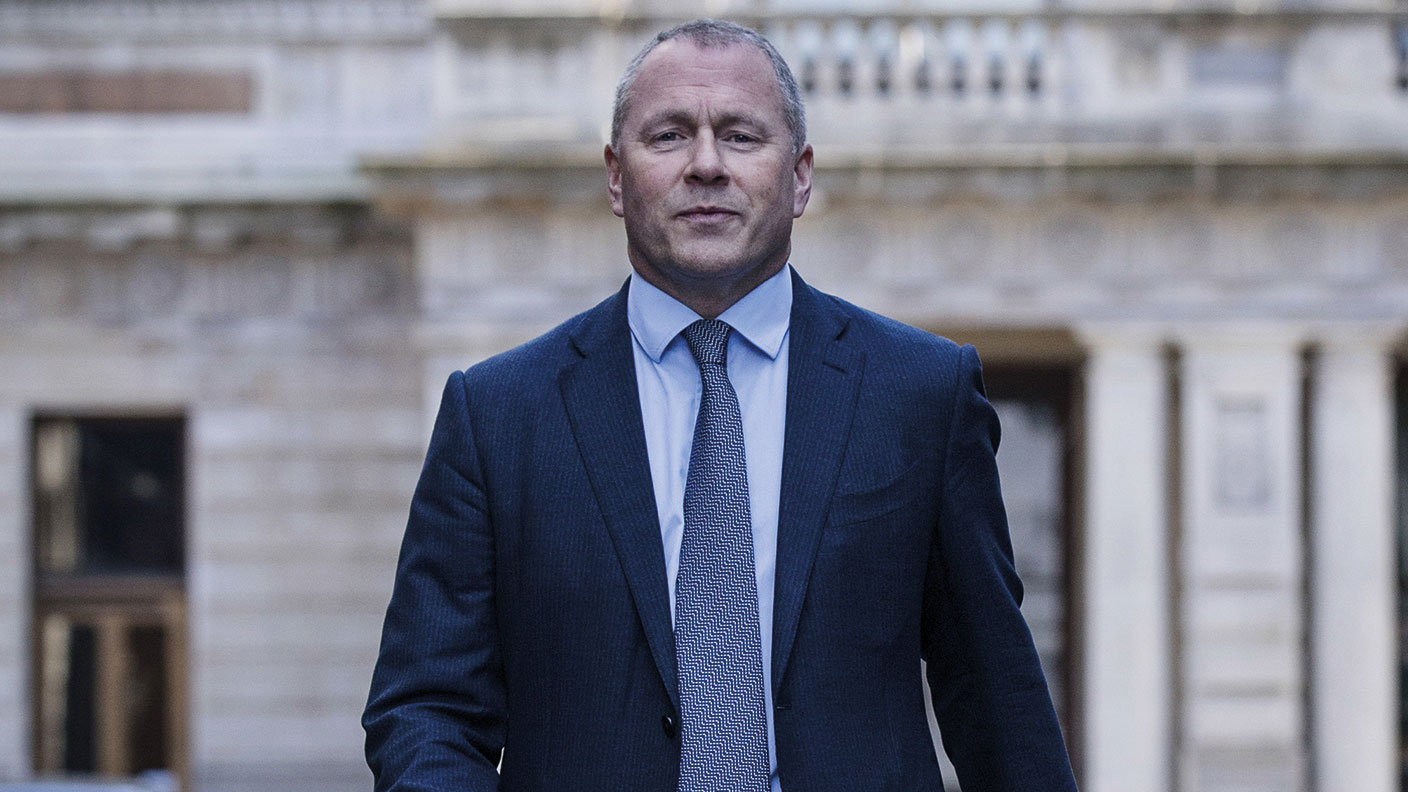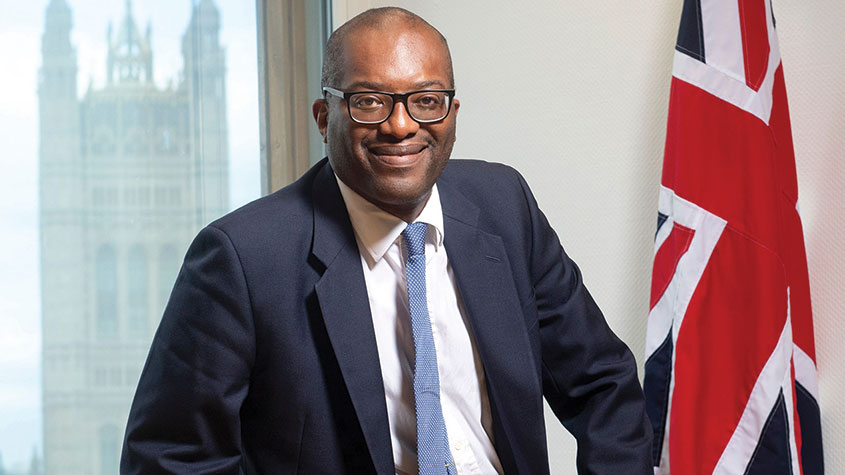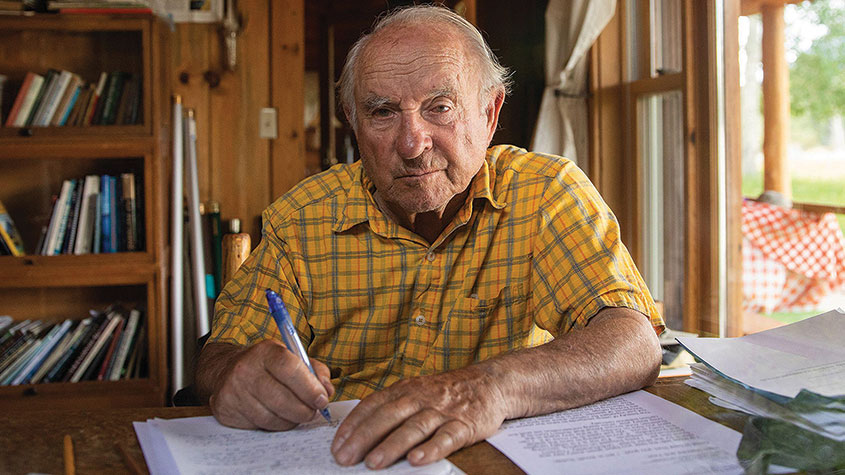Nicolai Tangen: Norway’s sovereign wealth fund changes hands
Nicolai Tangen, a risk-loving, jet-setting financier and hedge-fund manager, has been made head of the sovereign-wealth fund. Is he the right man for the job? Some Norwegians have their doubts. Jane Lewis reports

Get the latest financial news, insights and expert analysis from our award-winning MoneyWeek team, to help you understand what really matters when it comes to your finances.
You are now subscribed
Your newsletter sign-up was successful
Want to add more newsletters?

Twice daily
MoneyWeek
Get the latest financial news, insights and expert analysis from our award-winning MoneyWeek team, to help you understand what really matters when it comes to your finances.

Four times a week
Look After My Bills
Sign up to our free money-saving newsletter, filled with the latest news and expert advice to help you find the best tips and deals for managing your bills. Start saving today!
Until last month, Nicolai Tangen, the Norwegian-born hedge-fund manager, was best-known outside the world of finance for holding the world’s largest private collection of modern Nordic art – his AKO Foundation sponsored last year’s Munch exhibition at the British Museum.
Now, Tangen’s surprise elevation to head Norway’s giant $930bn oil fund, the world’s largest sovereign-wealth fund, has plunged him into a full-blown “morality play” in his home country, says Bloomberg, with union leaders and left-leaning politicians “voicing their outrage” that a risk-loving, jet-setting financier – whose firm, AKO Capital, is registered in the tax haven of the Cayman Islands – should have been made “guardian” of their national savings pot.
A breath of fresh air
The situation hasn’t been helped by the somewhat murky circumstances surrounding Tangen’s appointment as boss of Norges Bank Investment Management, which runs the fund. Suspicions aroused by his absence from the official short-list of candidates turned to “furore” when a tabloid newspaper revealed details of the hospitality he’d showered on the current head, Yngve Slyngstad, says The Economist. Tangen, who is due to take up the post in September, treated Slyngstad to “concerts by Sting and Gregory Porter, meals cooked by Jamie Oliver and a ride on a private jet”. Shocking stuff given the strict code of conduct that usually prevails at the fund where, as one insider recalls, “we even had to pay for our cup of coffee in meetings”.
MoneyWeek
Subscribe to MoneyWeek today and get your first six magazine issues absolutely FREE

Sign up to Money Morning
Don't miss the latest investment and personal finances news, market analysis, plus money-saving tips with our free twice-daily newsletter
Don't miss the latest investment and personal finances news, market analysis, plus money-saving tips with our free twice-daily newsletter
There are, nonetheless, plenty of people in Norway prepared to welcome Tangen, 54, as a breath of fresh air, says the Financial Times. “Investment professionals are delighted, hailing him as one of Norway’s most gifted and intellectually curious fund managers”, whose record speaks for itself: AKO’s flagship European fund has returned 10.1% annually since launching in 2005. Compare that to the mess he’s inheriting. Norway’s sovereign-wealth fund has just recorded the worst quarterly performance in its 24-year history, returning –14.6% in the first quarter.
Renaissance man
Born in 1966 in Kristiansand, Tangen began dabbling in equities as a child – investing money he earned selling newspapers and flowers, or recycling bottles after football matches. But he also had military interests. In the 1980s, he trained with Norway’s intelligence services. Then, after taking a degree at Wharton, he entered finance in the 1990s, becoming head of the Nordic region for Cazenove and then a partner at hedge fund Egerton Capital. In 2005, he set up AKO, which now manages more than $16bn of assets.
Tangen’s muscular background is apparent in the way he manages. AKO employees are trained in “conversation management” and how to build “mental resilience”. And he has a Renaissance man roster of outside interests, from cooking to studying for a masters in history of art at London’s Courtauld Institute and another in social psychology from the London School of Economics.
The big question, given all the trouble stirred up in Norway, is whether Tangen “still wants” to quit his charmed life in London for the icy north – with a substantial pay cut, says The Economist. There’s not much doubt about that. “This isn’t only my dream job, this is my childhood dream,” he outlined last month. Admirers reckon “it’s good to step on a few banana skins early”, says the FT. The question troubling some of Norway’s more conservative citizens is whether Tangen plans to make a habit of it.
Get the latest financial news, insights and expert analysis from our award-winning MoneyWeek team, to help you understand what really matters when it comes to your finances.
Jane writes profiles for MoneyWeek and is city editor of The Week. A former British Society of Magazine Editors (BSME) editor of the year, she cut her teeth in journalism editing The Daily Telegraph’s Letters page and writing gossip for the London Evening Standard – while contributing to a kaleidoscopic range of business magazines including Personnel Today, Edge, Microscope, Computing, PC Business World, and Business & Finance.
-
 Can mining stocks deliver golden gains?
Can mining stocks deliver golden gains?With gold and silver prices having outperformed the stock markets last year, mining stocks can be an effective, if volatile, means of gaining exposure
-
 8 ways the ‘sandwich generation’ can protect wealth
8 ways the ‘sandwich generation’ can protect wealthPeople squeezed between caring for ageing parents and adult children or younger grandchildren – known as the ‘sandwich generation’ – are at risk of neglecting their own financial planning. Here’s how to protect yourself and your loved ones’ wealth.
-
 VICE bankruptcy: how did it happen?
VICE bankruptcy: how did it happen?Was the VICE bankruptcy inevitable? We look into how the once multibillion-dollar came crashing down.
-
 What is Warren Buffett’s net worth?
What is Warren Buffett’s net worth?Warren Buffett, sometimes referred to as the “Oracle of Omaha”, is considered one of the most successful investors of all time. How did he make his billions?
-
 Kwasi Kwarteng: the leading light of the Tory right
Kwasi Kwarteng: the leading light of the Tory rightProfiles Kwasi Kwarteng, who studied 17th-century currency policy for his doctoral thesis, has always had a keen interest in economic crises. Now he is in one of his own making
-
 Yvon Chouinard: The billionaire “dirtbag” who's giving it all away
Yvon Chouinard: The billionaire “dirtbag” who's giving it all awayProfiles Outdoor-equipment retailer Yvon Chouinard is the latest in a line of rich benefactors to shun personal aggrandisement in favour of worthy causes.
-
 Johann Rupert: the Warren Buffett of luxury goods
Johann Rupert: the Warren Buffett of luxury goodsProfiles Johann Rupert, the presiding boss of Swiss luxury group Richemont, has seen off a challenge to his authority by a hedge fund. But his trials are not over yet.
-
 Profile: the fall of Alvin Chau, Macau’s junket king
Profile: the fall of Alvin Chau, Macau’s junket kingProfiles Alvin Chau made a fortune catering for Chinese gamblers as the authorities turned a blind eye. Now he’s on trial for illegal cross-border gambling, fraud and money laundering.
-
 Ryan Cohen: the “meme king” who sparked a frenzy
Ryan Cohen: the “meme king” who sparked a frenzyProfiles Ryan Cohen was credited with saving a clapped-out videogames retailer with little more than a knack for whipping up a social-media storm. But his latest intervention has backfired.
-
 The rise of Gautam Adani, Asia’s richest man
The rise of Gautam Adani, Asia’s richest manProfiles India’s Gautam Adani started working life as an exporter and hit the big time when he moved into infrastructure. Political connections have been useful – but are a double-edged sword.